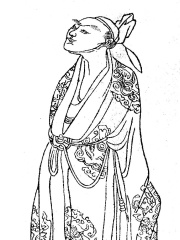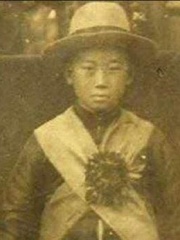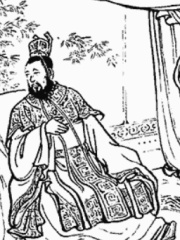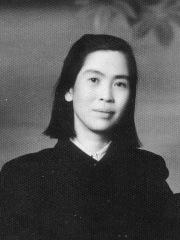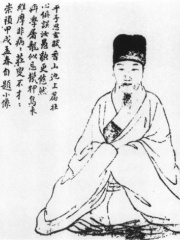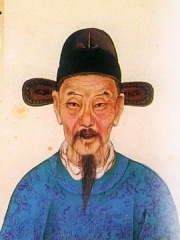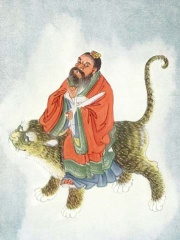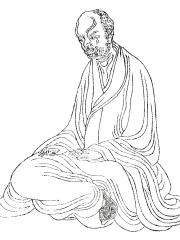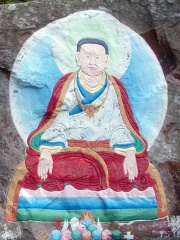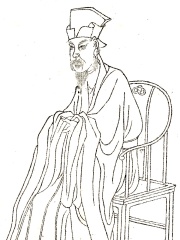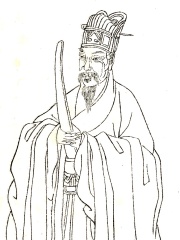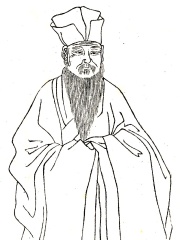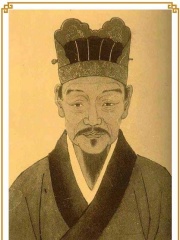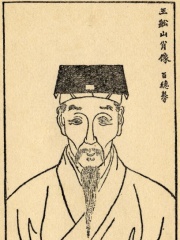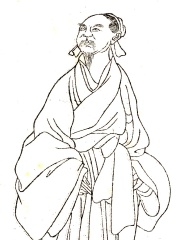Philosopher
Wang Bi
226 - 249
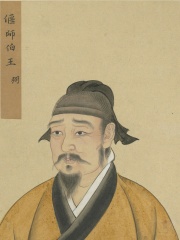
 Wang Bi
Wang Bi
Wang Bi (Chinese: 王弼; 226–249), courtesy name Fusi (Chinese: 輔嗣), was a Chinese philosopher and politician. During his brief career, he produced commentaries on the Tao Te Ching and I Ching which were highly influential in Chinese philosophy. Read more on Wikipedia
His biography is available in 19 different languages on Wikipedia (up from 18 in 2024). Wang Bi is the 659th most popular philosopher (up from 677th in 2024), the 486th most popular biography from China (up from 543rd in 2019) and the 26th most popular Chinese Philosopher.
Memorability Metrics
Page views of Wang Bi by language
Among Philosophers
Among philosophers, Wang Bi ranks 659 out of 1,267. Before him are Jaakko Hintikka, Anton Wilhelm Amo, Stein Rokkan, Amalric of Bena, Ernst Moritz Arndt, and Maximus of Ephesus. After him are Ravidas, Johannes Sturm, Nezahualcoyotl, Michael Walzer, Gorakhnath, and Ernst Nolte.
Most Popular Philosophers in Wikipedia
Go to all RankingsJaakko Hintikka
1929 - 2015
HPI: 63.93
Rank: 653
Anton Wilhelm Amo
1703 - 1759
HPI: 63.91
Rank: 654
Stein Rokkan
1921 - 1979
HPI: 63.89
Rank: 655
Amalric of Bena
1150 - 1206
HPI: 63.87
Rank: 656
Ernst Moritz Arndt
1769 - 1860
HPI: 63.87
Rank: 657
Maximus of Ephesus
310 - 372
HPI: 63.86
Rank: 658
Wang Bi
226 - 249
HPI: 63.86
Rank: 659
Ravidas
1450 - 1520
HPI: 63.85
Rank: 660
Johannes Sturm
1507 - 1589
HPI: 63.82
Rank: 661
Nezahualcoyotl
1402 - 1472
HPI: 63.82
Rank: 662
Michael Walzer
1935 - Present
HPI: 63.81
Rank: 663
Gorakhnath
1100 - 1200
HPI: 63.78
Rank: 664
Ernst Nolte
1923 - 2016
HPI: 63.77
Rank: 665
Contemporaries
Among people born in 226, Wang Bi ranks 2. Before him is Saint Valentine. Among people deceased in 249, Wang Bi ranks 4. Before him are Philip the Arab, Philip II, and Saint Apollonia. After him is Jotapianus.
Others Born in 226
Go to all RankingsSaint Valentine
RELIGIOUS FIGURE
226 - 273
HPI: 83.01
Rank: 1
Wang Bi
PHILOSOPHER
226 - 249
HPI: 63.86
Rank: 2
Others Deceased in 249
Go to all RankingsPhilip the Arab
POLITICIAN
204 - 249
HPI: 77.17
Rank: 1
Philip II
POLITICIAN
237 - 249
HPI: 75.35
Rank: 2
Saint Apollonia
RELIGIOUS FIGURE
110 - 249
HPI: 74.33
Rank: 3
Wang Bi
PHILOSOPHER
226 - 249
HPI: 63.86
Rank: 4
Jotapianus
POLITICIAN
200 - 249
HPI: 63.31
Rank: 5
In China
Among people born in China, Wang Bi ranks 486 out of 1,610. Before him are Yoshiko Yamaguchi (1920), Li He (790), Hong Tianguifu (1849), Zhang Lu (101), Han Gan (706), and He Zizhen (1910). After him are Shaohao (null), Ruan Ji (210), Tonyukuk (646), Dong Qichang (1555), Zhang Juzheng (1525), and Edward Yang (1947).
Others born in China
Go to all RankingsYoshiko Yamaguchi
ACTOR
1920 - 2014
HPI: 63.97
Rank: 480
Li He
WRITER
790 - 816
HPI: 63.96
Rank: 481
Hong Tianguifu
POLITICIAN
1849 - 1864
HPI: 63.95
Rank: 482
Zhang Lu
POLITICIAN
101 - 216
HPI: 63.90
Rank: 483
Han Gan
PAINTER
706 - 783
HPI: 63.87
Rank: 484
He Zizhen
POLITICIAN
1910 - 1984
HPI: 63.87
Rank: 485
Wang Bi
PHILOSOPHER
226 - 249
HPI: 63.86
Rank: 486
Shaohao
RELIGIOUS FIGURE
HPI: 63.86
Rank: 487
Ruan Ji
WRITER
210 - 263
HPI: 63.85
Rank: 488
Tonyukuk
POLITICIAN
646 - 724
HPI: 63.85
Rank: 489
Dong Qichang
PAINTER
1555 - 1636
HPI: 63.84
Rank: 490
Zhang Juzheng
POLITICIAN
1525 - 1582
HPI: 63.83
Rank: 491
Edward Yang
FILM DIRECTOR
1947 - 2007
HPI: 63.82
Rank: 492
Among Philosophers In China
Among philosophers born in China, Wang Bi ranks 26. Before him are Zhang Daoling (34), Huiyuan (334), Marpa Lotsawa (1012), Zhou Dunyi (1017), Hu Shih (1891), and Yang Xiong (-53). After him are Liu Bowen (1311), Shen Buhai (-385), Cheng Yi (1033), Li Zhi (1527), Wang Fuzhi (1619), and Zhang Zai (1020).
Zhang Daoling
34 - 156
HPI: 66.64
Rank: 20
Huiyuan
334 - 416
HPI: 65.87
Rank: 21
Marpa Lotsawa
1012 - 1097
HPI: 65.55
Rank: 22
Zhou Dunyi
1017 - 1073
HPI: 65.34
Rank: 23
Hu Shih
1891 - 1962
HPI: 65.04
Rank: 24
Yang Xiong
53 BC - 18
HPI: 64.00
Rank: 25
Wang Bi
226 - 249
HPI: 63.86
Rank: 26
Liu Bowen
1311 - 1375
HPI: 63.77
Rank: 27
Shen Buhai
385 BC - 337 BC
HPI: 63.74
Rank: 28
Cheng Yi
1033 - 1107
HPI: 62.98
Rank: 29
Li Zhi
1527 - 1602
HPI: 62.89
Rank: 30
Wang Fuzhi
1619 - 1692
HPI: 62.86
Rank: 31
Zhang Zai
1020 - 1077
HPI: 62.28
Rank: 32


















